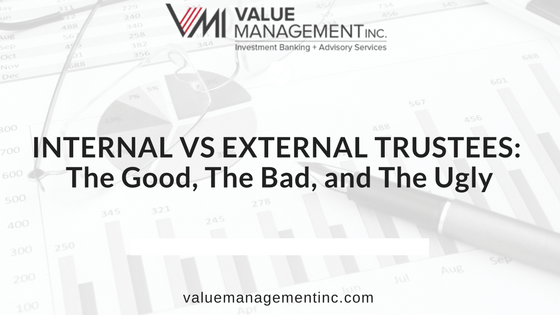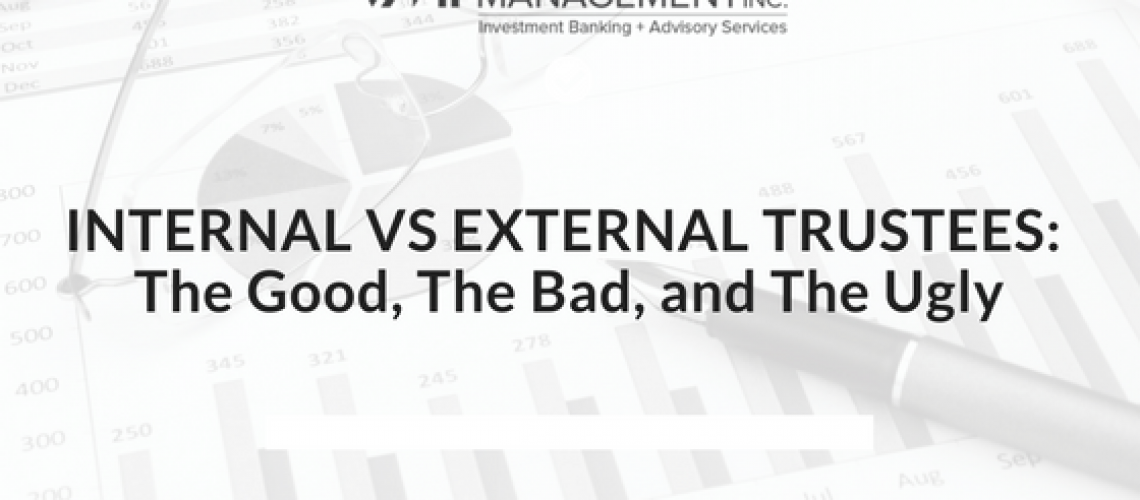
The world of ESOPs is hardly a gun-slinging Clint Eastwood movie but the complexity of the plans, ERISA’s guidelines, and the compliance requirements, can occasionally make it feel like the Wild West. In some cases, the selection of an appropriate trustee can evoke the Good, the Bad, and the Ugly. VMI offers the following guidelines to help our clients make the right choices…
The Good
When establishing an ESOP, the selection of a Good trustee is a crucial step. A Good trustee must uphold the highest fiduciary standards, and observe the following requirements:
- The trustee must meet the “prudent expert standard,” meaning that he or she must possess the knowledge and skills required to create and/or maintain the plan, and must carry out the plan duties prudently.
- The trustee must be independent of the owner and the Board of Directors.
- The trustee must follow plan documents (compliant with ERISA).
- The trustee must be willing and able to devote the time and effort needed to create and maintain the ESOP.
- The trustee must act solely in the interest of the plan participants and their beneficiaries.
- The trustee must diversify plan investments and pay only reasonable plan expenses.
These six requirements are non-negotiable but whether to choose an internal or an external/corporate trustee is open to discussion and like most things in life, there are Good, Bad, and Ugly elements in each.
Internal Trustees: The Good
- This arrangement is economical. It avoids the costs of paying an external, or corporate trustee. In fact, ERISA prohibits a fiduciary who is a beneficiary of a plan from being compensated by the plan.
- Internal trustees generally have intimate knowledge of the company, the employees, and the culture.
- ERISA consider this setup legally permissible.
External Trustees: The Good
- External or corporate trustees have the professional experience and qualifications to meet the “prudent expert standard” rule.
- External trustees have the time and focus to stay current on the ever-changing rules and regulations governing ESOPs; it is their business.
- External trustees are generally backed by an institution, and therefor benefit from the pool of knowledge and expertise available there.
- Because they likely handle large numbers of plans, external trustees have an infrastructure system in place to maintain the plans, ensure compliance, keep records, manage taxes and generate required reports.
The Bad
Like most swords, the internal/external trustee decision is double edged.
Internal Trustees: The Bad
- Depending on the nature of their business, internal trustees may lack the experience and expertise required to run the plan. While their knowledge of their industry may be unparalleled, that is little help when managing complex plan documents.
- There is no delegating of trustee responsibility. If the trustee remains active in the company while serving as trustee, he or she will be stretched mighty thin.
External Trustees: The Bad
- The fees associated with hiring an external trustee can be seen as a negative.
- Because external trustees do not have personal relationships with the workforce or knowledge of the business, plan participants may feel misunderstood, alienated or mistrustful.
The Ugly
But here is where things get really interesting around ESOPs: when lawsuits and perceived conflicts of interest rear their Ugly heads.
If something goes awry with the ESOP transaction or maintenance, an external trustee has the resources and infrastructure to respond and address the difficulty. Similarly, external/corporate trustees are generally better funded and able to provide legal remedy if needed.
If the trustee is internal and a problem arises, legal recourse and remedy are limited.
Conflict of interest is also a potentially perceived Ugly risk. Internal trustees are necessarily related to the plan sponsor in one or more ways, as director, corporate officer, employee and/or participant, often with a large balance, yet they must separate these roles from that of trustee. While this is possible for many professionals, fellow participants may perceive a conflict of interest and feel suspicious of the trustee, which can lead to problems.
Wise investors should always seek expert advice on ESOPs and similarly complex transactions to ensure that they remain on the side of the Good, and avoid both the Bad and the Ugly.

